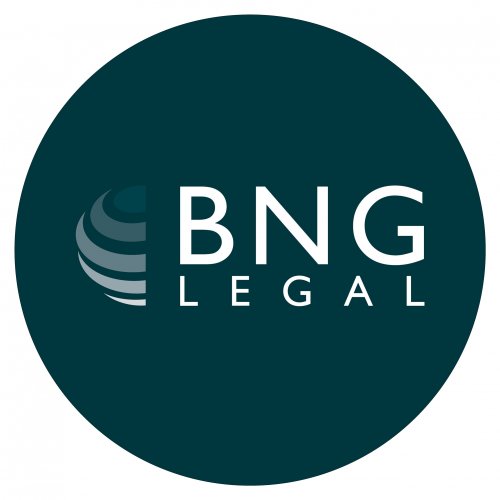Best Public-Private Partnerships (PPP) Lawyers in Cambodia
Share your needs with us, get contacted by law firms.
Free. Takes 2 min.
Or refine your search by selecting a city:
List of the best lawyers in Cambodia
About Public-Private Partnerships (PPP) Law in Cambodia
Public-Private Partnerships (PPPs) are cooperative arrangements between the public sector and private entities to finance, build, and operate projects typically related to infrastructure or services for public benefit. In Cambodia, PPPs have gained prominence as the government seeks ways to accelerate infrastructure development in sectors such as transportation, energy, water, healthcare, and education. Cambodia has established a legal framework to guide these collaborations, aiming to balance the interests of all parties while ensuring benefits to the public.
Why You May Need a Lawyer
Entering a PPP agreement in Cambodia can be complex. Individuals, business owners, investors, and NGOs may require legal help in various situations including:
- Understanding the legal requirements and obligations under PPP laws or contracts
- Participating in bidding or procurement procedures for PPP projects
- Negotiating terms and managing risks within PPP contracts
- Resolving disputes that may arise between public and private partners
- Navigating issues of land acquisition, licensing, and environmental regulation
- Ensuring compliance with Cambodian laws, including anti-corruption, tax, and labor laws
- Securing project finance and dealing with lenders or investors
- Drafting and reviewing PPP contracts and related agreements
Local Laws Overview
PPP activity in Cambodia is primarily guided by the Law on Public-Private Partnerships, promulgated in March 2021. This law replaces the previous legal framework on concessions and aims to standardize the approach to PPPs. Here are key aspects of local laws relevant to PPPs in Cambodia:
- Types of PPP Models: Cambodian law recognizes several forms, including Build-Operate-Transfer (BOT), Build-Own-Operate (BOO), and other variations that fit project needs.
- Project Selection and Approval: Not all public projects are open to PPP. The Royal Government of Cambodia (RGC) defines a list of eligible projects and sets criteria for selection and approval.
- Bidding and Procurement: The law requires transparent, competitive procurement procedures for selecting private partners.
- Contractual Requirements: PPP contracts must detail terms such as project scope, performance obligations, risk allocation, payment mechanisms, and dispute resolution.
- Government Support and Guarantees: In some projects, the government may provide guarantees or incentives. Legal advisors are critical to understand these commitments and their implications.
- Term and Termination: PPP agreements define the project duration, extension, and termination conditions, including compensation mechanisms if contracts are ended early.
- Dispute Resolution: PPP-related disputes can be resolved through negotiation, mediation, domestic courts, or international arbitration subject to contract stipulations.
- Supervision and Monitoring: The law designates authorities responsible for oversight, compliance, and performance monitoring of PPP projects.
Frequently Asked Questions
What is a Public-Private Partnership (PPP)?
A PPP is a cooperative arrangement where the public sector and private companies work together to deliver public infrastructure or services. Each party shares responsibilities, risks, and rewards according to an agreed contract.
Who regulates PPPs in Cambodia?
PPPs are overseen by the Ministry of Economy and Finance (MEF), with specific directorates handling project evaluation, approval, and monitoring. Other sectoral ministries may also be involved depending on the project type.
Which sectors in Cambodia use PPPs?
Common PPP sectors include roads, bridges, airports, water supply, power generation, healthcare, education, and waste management. The government continually reviews and updates eligible sectors.
How are PPP projects awarded?
Projects are typically awarded through a competitive bidding process to ensure transparency and value for money. Some projects may be negotiated directly in special circumstances as allowed by law.
Can foreign companies participate in PPPs?
Yes, foreign companies are allowed to participate in PPP projects, subject to Cambodian laws on investment, registration, and sector-specific restrictions.
What are the main risks in PPPs?
Risks include demand risk, construction risk, regulatory risk, financial risk, and political risk. Proper risk allocation and management is essential and usually outlined in the PPP contract.
How long do PPP contracts last?
PPP contracts often range from 15 to 30 years, depending on the project’s nature and investment required. The specific duration is agreed upon during contract negotiation.
What happens if a dispute arises?
Disputes are addressed first through negotiation or mediation. If unresolved, parties may resort to domestic courts or international arbitration as provided under the contract terms.
Are there any incentives for private investors in PPPs?
Yes, the government may provide incentives such as tax benefits, guarantees, and support for land acquisition. The specifics depend on project type and negotiation.
Is public consultation required for PPP projects?
Yes, many PPP projects, especially those with environmental or social impact, require public consultation and compliance with environmental and planning regulations.
Additional Resources
For further assistance and reliable information, you may consider approaching the following resources:
- Ministry of Economy and Finance - PPP Directorate
- Council for the Development of Cambodia (CDC) - Especially for investment-related PPP projects
- Ministry of Public Works and Transport - For transport infrastructure projects
- Development partners such as the Asian Development Bank (ADB) and World Bank, which support PPP capacity building
- Legal and business associations, such as the Cambodian Bar Association or the Cambodia Chamber of Commerce
Next Steps
If you are considering involvement in a PPP project or need legal guidance regarding existing obligations, the following steps can help you navigate the process:
- Identify your specific needs and project goals related to PPPs
- Gather basic documentation and information relevant to your sector or proposed project
- Research and list lawyers or law firms with PPP expertise in Cambodia
- Arrange a consultation to discuss your questions, potential risks, and compliance matters
- Work with your chosen legal professional to handle negotiations, contract drafting, and compliance with local laws
- Maintain clear communication with relevant authorities and stakeholders throughout the process
- Stay informed of legal and regulatory changes affecting PPPs in Cambodia
Engaging a qualified lawyer early can help you avoid legal pitfalls and ensure the success of your PPP project in Cambodia.
Lawzana helps you find the best lawyers and law firms in Cambodia through a curated and pre-screened list of qualified legal professionals. Our platform offers rankings and detailed profiles of attorneys and law firms, allowing you to compare based on practice areas, including Public-Private Partnerships (PPP), experience, and client feedback.
Each profile includes a description of the firm's areas of practice, client reviews, team members and partners, year of establishment, spoken languages, office locations, contact information, social media presence, and any published articles or resources. Most firms on our platform speak English and are experienced in both local and international legal matters.
Get a quote from top-rated law firms in Cambodia — quickly, securely, and without unnecessary hassle.
Disclaimer:
The information provided on this page is for general informational purposes only and does not constitute legal advice. While we strive to ensure the accuracy and relevance of the content, legal information may change over time, and interpretations of the law can vary. You should always consult with a qualified legal professional for advice specific to your situation.
We disclaim all liability for actions taken or not taken based on the content of this page. If you believe any information is incorrect or outdated, please contact us, and we will review and update it where appropriate.
Browse public-private partnerships (ppp) law firms by city in Cambodia
Refine your search by selecting a city.














